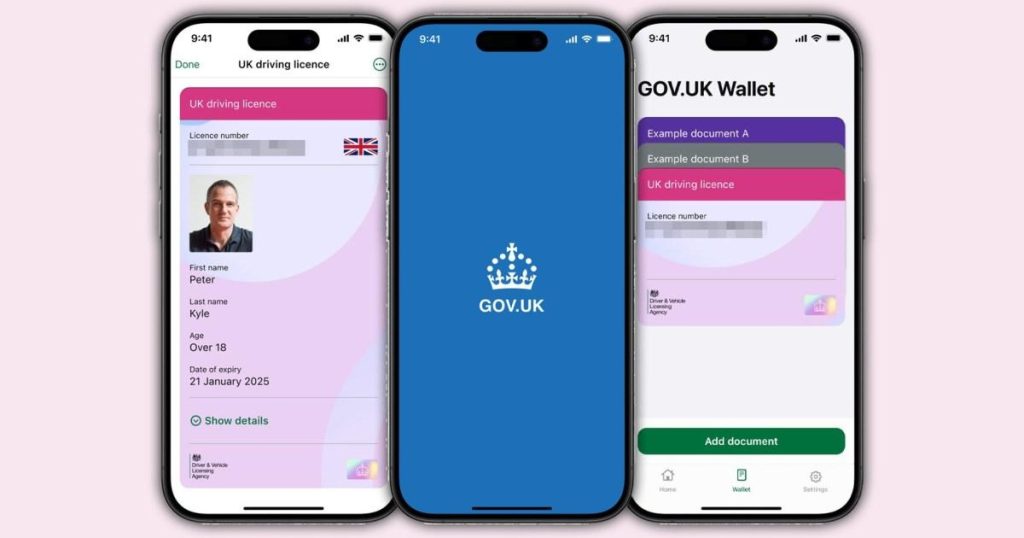The UK government is poised to launch a digital wallet and accompanying Gov.uk app later this year, revolutionizing how citizens interact with government services and manage their personal credentials. This initiative aims to streamline various processes, from accessing driving licenses and tracking benefit payments to registering to vote and verifying age. The digital wallet will serve as a secure repository for official documents, starting with veteran cards and followed by an early version of the digital driving licence. Eventually, the wallet will expand to encompass a wide range of credentials, including Blue Badges, PIP letters, DBS checks, and other government-issued documents. This move towards digitization promises to eliminate the clutter of physical documents and the hassle of lengthy phone calls and website navigation, ultimately placing more control and convenience in the hands of citizens.
The unveiling of the digital driving license generated some initial hiccups when pre-release screenshots inadvertently revealed Science Secretary Peter Kyle’s actual license number. This minor blunder, quickly rectified by officials, underscores the importance of robust security measures in the development and implementation of such digital systems. Beyond the driving license, the Gov.uk Wallet holds the potential to transform how individuals access and utilize a variety of essential documents, simplifying everyday interactions and enhancing security. The wallet aims to provide a trusted and efficient platform for verifying identity and eligibility for various services, replacing the often cumbersome process of presenting physical documents.
The accompanying Gov.uk app further strengthens the government’s digital push by consolidating numerous government services into a single, accessible interface. This centralized platform will allow users to efficiently manage tasks such as paying vehicle tax, searching for apprenticeships, and reporting a stolen passport. By streamlining these processes, the app aims to eliminate the need for navigating complex government websites, saving users time and frustration. Both the digital wallet and the Gov.uk app will be available for download on Apple and Android devices, ensuring broad accessibility for citizens. This cross-platform compatibility is crucial for maximizing the reach and impact of these digital initiatives.
The introduction of the digital driving license is particularly noteworthy, touted as a “game changer” for millions who rely on it for identification purposes. This digital format provides a convenient and secure alternative to carrying a physical card, reducing the risk of loss or theft. Moreover, the digital driving licence can potentially streamline interactions with law enforcement and other authorities, simplifying verification processes. The broader implications of digital identity extend beyond government services, with potential applications in various sectors, including age verification for online services and access control for physical locations.
The potential use of digital ID for age verification on adult websites, as suggested by Ofcom guidance, has sparked discussion around privacy and security concerns. While the government’s focus is on streamlining interactions with public services, the versatility of digital ID raises important questions about its appropriate application and the safeguards necessary to protect user data. Striking a balance between convenience and security will be crucial as digital identity becomes more prevalent in various aspects of life. Ensuring robust data protection measures and clear regulations will be essential to maintain public trust and prevent misuse.
The government’s digital initiatives represent a significant step towards modernizing citizen interactions and improving accessibility to essential services. The Gov.uk Wallet and accompanying app promise to simplify numerous processes, reducing bureaucratic hurdles and empowering citizens with greater control over their information. However, successful implementation will require addressing potential security concerns and ensuring that these digital tools are accessible and user-friendly for all segments of the population. The government must prioritize user privacy and data security throughout the development and deployment of these systems to maintain public trust and maximize the benefits of digital transformation.











